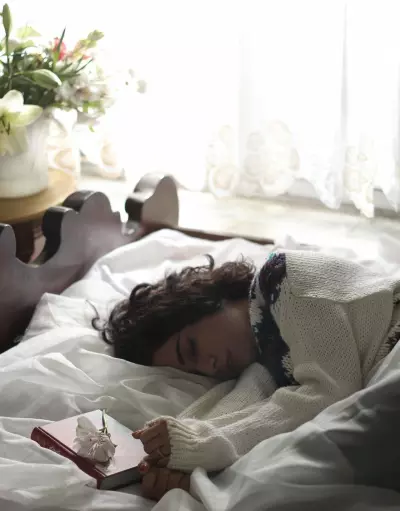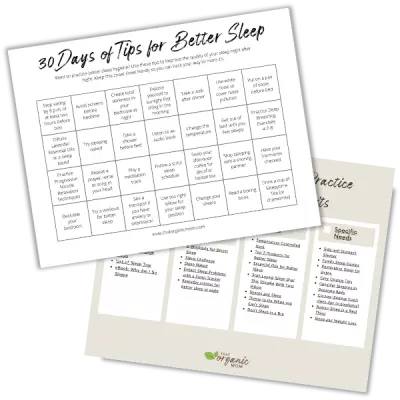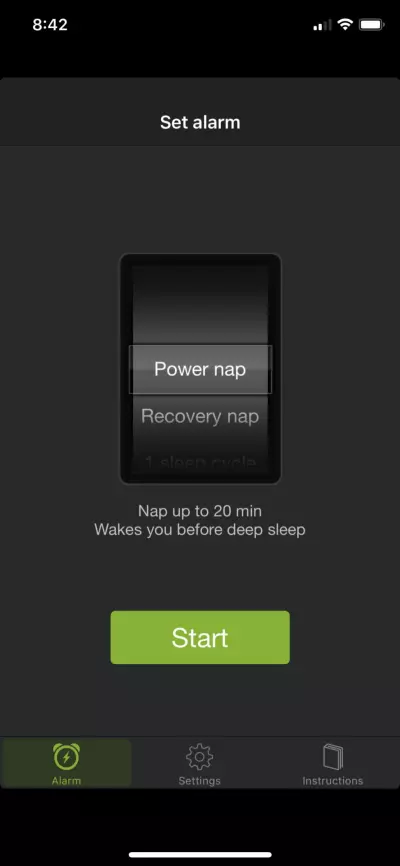Last Updated on June 29, 2022 by Rebecca Huff
Can I sleep too much? Are 10-12 hours per night too much? How many hours are healthy for the average person? These are questions that have recently shown up in my inbox during 2020. More people are experiencing sleep disturbances, strange dreams, and a change in duration, much of it related to our mental health.
All this left me wondering, is it worse to get too much sleep or not enough? You might find it hard to believe, but both too little and too much are hazardous to your health.
According to one study, “Participants who reported sleeping 8 hours or more experienced significantly increased mortality hazard, as did those who slept 6 hours or less. The increased risk exceeded 15% for those reporting more than 8.5 hours of sleep or less than 3.5 or 4.5 hours.”
Not enough is a more common problem than too much, but for those who oversleep, it is equally important to address the underlying cause. Medication, depression, chronic illness, anxiety and stress can all cause us to become long sleepers.
Although your body is equipped to wake when it has had enough, many people rely on an alarm clock. Predominantly due to fear of oversleeping, which in part happens because most people are sleep deprived. Chronic deprivation is why they reach for that snooze button.
Can sleeping too much make you tired?

Have you ever turned off your alarm to snooze for an extra hour or two and woke up feeling worse than usual? Research shows that getting too much can lead to more fatigue! The term scientists use to describe this is “sleep drunkenness” or severe morning inertia. This is why most people wake up feeling crappy after twelve hours in bed.
Sleeping ten to twelve hours now and then won't harm your health, but if you do it consistently, it could indicate an underlying health problem. “The evidence that [too much] sleep is associated with obesity, diabetes, hypertension or other cardiovascular diseases and with a 20%–30% higher mortality risk has consistently been found even stronger than the associations with [too little.] and suggests that [too much] may be even more detrimental in terms of mortality than [not enough] sleep.”
Causes of oversleeping may include:
- medication
- chronic pain
- poor sleep quality
- a medical condition or health problems
- narcolepsy
Heart Disease and Too Much Sleep
Sleeping too much, even by as little as an hour, consistently can increase your risk of a heart attack.
“[One] analysis revealed that those who slept less than 6 hours per night had a 20% higher risk of a first heart attack in comparison to those who slept 6–9 hours. Those who slept more than 9 hours had a 34% higher risk. ~ Heart Attack Risk Higher in Those Who Sleep too Little or Too Much
Other health issues, such as type 2 diabetes, may result from sleeping too much.
“For the last 30 years, scientists have been telling us that not getting enough sleep may be a cause of type 2 diabetes. Now a new study in the Journal of Clinical Endocrinology and Metabolism suggests that sleeping too much may also increase the risk of getting the disease.”
While too little is known about the subject, research shows that it can contribute to chronic pain, in particular, back pain.
Sleeping too much may also boost inflammation in the body, which is also associated with cardiovascular disease. ~ Science Daily
It's important to balance your activity level and other healthy habits. Following a sleep schedule will help ensure you get the right amount of sleep night after night.
So how much sleep do we need?
The body is equipped with everything it needs to maintain a normal circadian rhythm. Unless you have a medical condition, you should be able to find the right amount on your own. Sleep trackers can be handy in finding that sweet spot between too much and too little.
Keeping in mind that sleep trackers are not a replacement for a clinic, using one can give us the necessary information to help detect if one has a problem that needs to be explored more in-depth. In which case, the data from a sleep tracker can be presented to one’s physician for a referral to a specialist.
Multiple factors are at play when it comes to how much sleep we need. If you consistently get more than 8-9 hours per night, consult your physician to see if there may be an underlying health condition causing your body to require more sleep. Your doctor may suggest you undergo a sleep study.
Anyone can practice good sleep hygiene habits to allow the body to get the right amount every night.
Maintaining Circadian Rhythms
Follow a healthy sleep schedule so that your body can regulate your wake time naturally.
A healthy sleep cycle lasts about 90 minutes and consists of five stages. REM (rapid eye movement) only occurs in the fifth stage and accounts for approximately 20-25% of a sleep cycle. During the other four stages, we encounter NREM (non-rapid-eye movement). It is during the 5th stage, REM, that dreaming and restoration occur.
If you think about it in cycles, 7.5 hours equals five complete cycles, add in 15 minutes to fall asleep, and 15 minutes to fully wake up, and you've got about eight hours.
When your work hours change or school starts back, your bedtime and waketime may shift. Any change in your sleep schedule will disrupt your circadian rhythm. This disruption means you will need to reset your sleep cycles, which typically takes 3-4 days.
Getting on a better sleep schedule depends, in part, on what you do when you wake up. So, open those curtains and let the sunshine in! Getting light exposure first thing in the morning will help you sleep better at night. Bright light in the morning; total darkness at night, just how nature intended.

Benefits of getting just enough sleep:
- ramps up your immune system
- leaves you feeling energetic and refreshed
- helps maintain the proper weight
- gives your brain and body time to do repair work
How do I stop oversleeping?
Now, don't freak out if you have been sleeping 9 hours per night. Everyone has their own particular needs, especially teenagers, who may need to sleep a bit later due to a shift in their circadian rhythm. Just how many hours you sleep per night may be affected by various factors such as age, health, genes, and daily activities.
Young adults tend to spend less time in bed than older adults, and they get better sleep. As we age, our sleep quality may worsen, which leads to excessive sleepiness during the day, which in turn results in less shut-eye at night.
People with poor adrenal health may need to sleep several extra hours per night for many months while they recover. Those who have sleep-related health problems such as apnea may experience excessive daytime sleepiness. It is vital to work with a doctor to correct oversleeping or sleep deprivation.
Sadly, so many of us understand the benefits, yet fail to practice good sleep hygiene. You can baby step your way into lifelong habits that promote good sleep. Here are some suggestions that may help you stop oversleeping.
Reduce stress
Stress is a huge problem when it comes to getting a peaceful nights' sleep. You may not think that stress is having an impact on your rest, but your mind is likely still racing even if you are not consciously aware of it. A good analogy is how your phone battery drains even when you are not actively using it because of apps running in the background.
An excellent way to kick off a bedtime routine is to release stress by prayer or meditation. You can also do an active relaxation exercise. While listening to soothing music, take deep, relaxing breaths, consciously tighten and release each muscle in your body.
Ditch your old mattress
Your mattress CAN be preventing you from getting a good night's sleep. It's best to replace your mattress every 7-8 years. If you've ever moved an old mattress, you know that they can get heavier over time, this is caused by everything from dead skin cells to dust mites. This added weight isn't the only problem; it may contribute to sleep disturbances such as pain and stiffness, in addition to asthma and allergies.
You may not like the thought of it—but microscopic dust mites often inhabit the dust and dander inside our homes. Dust mites thrive in warm, humid locations that feature an abundance of their favorite food: dead human skin cells. And guess what? Your mattress is like the Grand Bellagio to mites with free room service and a continental breakfast. ~ The Bed Boss
Download the 30 Days of Tips for Better Sleep

If you choose a memory foam mattress and pillow, you won't need to worry about mites as much. This is because cotton and fiberfill are more attractive to dust mites than memory foam. The density does not allow the mites to burrow and thrive like they can in other mattress materials, making memory foam more resistant to the little devils!
Exercise like a kid
Go back to your childhood when it comes to exercise. So many of us tend to think of exercise as drudgery, which is an added stressor. Instead of dragging your butt to the gym, why not do an activity you enjoy? A 30 minute game of badminton with your kid will get your heart pumping! Choose something that makes you forget time is passing.
According to research, people who exercise regularly tend to have a better sleep at night. It not only helps those with insomnia but can also help people who sleep too much.
Eat foods that promote balanced sleep
What you eat has a direct impact on how well you sleep. So reevaluate your afternoon and bedtime snacks. I suggest learning what to eat and when to eat if for a good night's sleep every night. The book Eat to Sleep will help you discover how your nutritional choices impact the quality of your sleep.
Food is an all-natural sleep aid that can help you correct your circadian rhythm when you incorporate the right sleepy-foods into your diet. Here is a list of foods that are helpful:
- almonds
- avocados
- brown rice
- cherries
- oatmeal
- salmon
- sweet potatoes
Nap Smart, if at all
Not all naps are beneficial. Napping late in the afternoon can prevent a good night's sleep later in the evening.
Too much napping during the day can disrupt nighttime sleep, sometimes causing an inability to fall and stay asleep. Research indicates that too much napping can lead to elevated C-reactive protein, a marker for inflammation, although the correlation is inconsistent, it is worth noting. (source) ~ Can you catch up on a sleep debt
Napping too late keeps you up at night, which leads to more sleepiness the following day, and eventually leads to sleeping too much in an effort to catch up. It's best to practice good sleep habits, so there won't be a need to supplement with naps.
Reserve naps for those moments when you are tempted to grab an energy drink or a late cup of coffee to keep you awake at 2 p.m. Instead, try a power nap. Consider using an app like “Power Nap” that will prevent you from waking during a REM cycle. When you are dragging so hard you can't concentrate, try a short power nap.

Unplug for Better Sleep
Research continues to prove that screentime negatively impacts your sleep patterns. Blue light blocking glasses are a must if you watch TV or work on a computer close to bedtime. Another way to improve sleep is by turning your phone off or at least putting it on airplane mode.
There’s nothing worse than the startlingly harsh wake-up call of a regular alarm clock. Most people use their smartphone as an alarm, and if you do so, remember to turn it on airplane mode at night, so the frequencies don’t disrupt your sleep patterns.
Reserve Coffee for Mornings
We know that caffeine in the afternoon has an impact on slumber because caffeine's half-life is about 6-12 hours. The caffeine in coffee is useful to give us that little boost we need in the morning. We appreciate that energy so much that we may begin to abuse its power! Drinking more than about four 8 oz cups can have the reverse effect, making you feel sleepy!
So, measure how much your coffee cup holds and monitor your intake. If you're regularly drinking more than 32 ounces or 400 mg caffeine, then you may be causing more harm than good.
Grounding or Earthing to balance sleep cycles
Grounding appears to improve sleep, normalize the day-night cortisol rhythm, reduce pain, reduce stress, shift the autonomic nervous system from sympathetic toward parasympathetic activation, increase heart rate variability, speed wound healing, and reduce blood viscosity. ~ The Effects of Grounding
One of the first published grounding studies examined the effects of grounding on sleep and circadian cortisol profiles. The study involved 12 subjects who were in pain and had problems sleeping.
Participants in this study used a grounding mat across the foot of the bed and slept grounded for two months. During that period, their sleep improved, pain and stress levels declined, and diurnal cortisol profiles normalized.
Whether you get too much or not enough, adding a grounding to your sleep hygiene habits may help improve your sleep quality. Walking barefoot on the earth, whether a grassy meadow or a sandy beach, is beneficial and will also help to improve your health. Get the best night sleep you’ve ever had using a grounding pad on your bed.
Sleep at the right temperature
The demands of life are different for each individual, and it's essential to take note that while one person may have hot flashes at night, their partner may be freezing cold! One way to help the body correct the circadian rhythm, we can adjust the temperature in the bed at night. The temperature of your body changes throughout the evening and into the night and morning to signal sleep and wake times.
You can get just the right amount by using this sleep hack involving a temperature-controlled mattress pad as described in this article.
Address Disorders
Sleep Apnea
Probably one of the most common sleep disorders is obstructive sleep apnea, which occurs when the muscles in the mouth and throat relax momentarily, narrowing the airway enough to cut off airflow. Another type of apnea occurs when the brain fails to signal the muscles but is a less common type of apnea. Some people experience mixed apnea where both occur.
Doctors typically prescribe sleeping with a CPAP machine (continuous positive airway pressure) to help keep airways open. While it may be challenging to learn to rest while wearing the device, most users report an increase in sleep quality after a few weeks.
Hypersomnia
Idiopathic hypersomnia is a neurological disorder and is another condition that may cause people to sleep too much. People with idiopathic hypersomnia feel painfully drowsy even after a full night of rest. This condition is usually diagnosed after three or more months of excessive daytime lethargy and a sleep study.
The bottom line is, sleeping too much is just as unhealthy, if not more so, than sleeping too little. Balance is the key to achieving optimal health.


![Clean Paleo Real Life Cookbook Review and Menu Plan [Keto Friendly] 8](https://www.thatorganicmom.com/wp-content/uploads/2020/07/clean-paleo-real-life-cookbook-review-and-menu-plan-keto-friendly-91-80x80.jpeg) Clean Paleo Real Life Cookbook Review and Menu Plan [Keto Friendly]
Clean Paleo Real Life Cookbook Review and Menu Plan [Keto Friendly]
Leave a Reply
You must be logged in to post a comment.